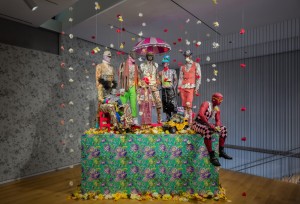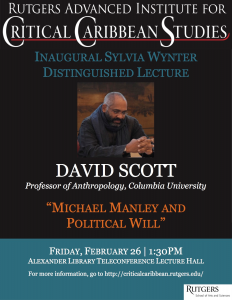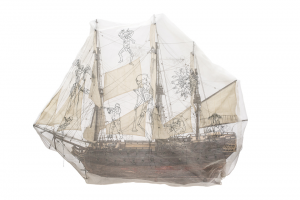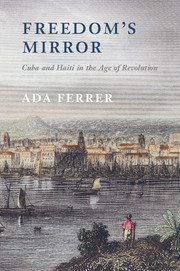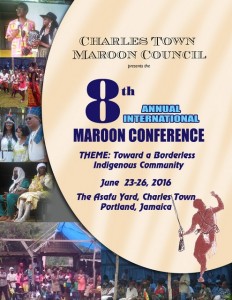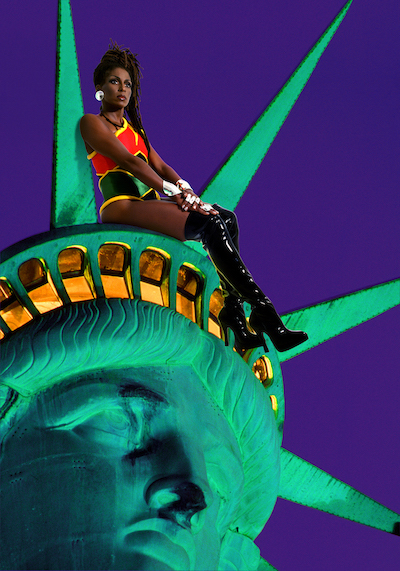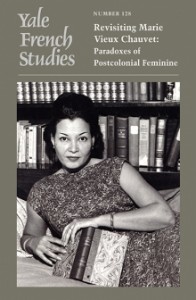Book chapters sought for anthology to be edited by Celucien L. Joseph, PhD
Deadline: 300 word abstract by 29 February 2016, emailed to (celucienjoseph@gmail.com)
Call for Papers
Jean Price-Mars (1876 – 1969), Haitian physician, ethnographer, diplomat, educator, historian, politician, was a towering intellectual in Haitian history and cultural studies, and a Pan Africanist who called to reevaluate the contributions of Africa in universal civilizations and to revalorize African retentions and cultural practices in the Black diaspora, especially on Haitian soil. Through his writings, Price-Mars, whom Leopold Sedar Senghor called “the Father of Negritude,” sought to establish connecting links between Africa and the Black Diaspora, and the shared history and struggle between people of African descent in the Diaspora.
For many scholars, Price-Mars is the father of Haitian ethnology and Dean of Haitian Studies in the twentieth-century, and arguably, the most influential Haitian thinker that has graced the “Black Republic” since the death of Joseph Auguste Anténor Firmin in 1911. In Haitian thought, Price-Mars has exercised an enduring intellectual and ideological influence on the young Haitian intellectuals and writers of the generation of the American Occupation in Haiti (1915-1934) and the post-Occupation culture from the 1930s to 1970s. He is especially known for launching a cultural nationalism and an anti-imperial movement against the brutal American military forces in Haiti.
The writings of Price-Mars were instrumental in challenging the Haitian intellectual of his leadership role in the Haitian society, and in promoting national consciousness and unity among Haitians of all social classes and against their American oppressor. Comparatively, his work was a catalyst in the process of shaping and reshaping Haitian cultural identity and reconsidering the viability of the Afro-Haitian faith of Vodou as religion among the so-called World religions. His thought anticipated what is known today as postcolonialism and decolonization.
Moreover, scholars have also identified Price-Mars as the Francophone counterpart of W.E.B. Du Bois for his activism, scholarly rigor, leadership efficiency, and his unremitting efforts to challenge Western racial history, ideology, and white supremacy in the modern world. Unapologetically, Price-Mars challenged the doctrine of white supremacy and the ideological construction of Western history by demonstrating the equality and dignity of the races and all people, and their achievements in the human historical narrative. As Du Bois, he was a transdisciplinary scholar, boundary-crosser, and cross-cultural theorist; in an unorthodox way, he had brought in conversation various disciplines including anthropology, ethnography, geography, sociology, history, religion, philosophy, race theory, and literature to study the human condition and the most pressing issues facing the nations and peoples of the world, as well as the possible implications they may bear upon us in the postcolonial moment.
Between Two Worlds: Jean Price-Mars, Haiti, and Africa is a special volume on Jean Price-Mars that reassesses the importance of his thought and legacy, and the implications of his ideas in the twenty-first century’s culture of political correctness, the continuing challenge of race and racism, and imperial hegemony in the modern world. Price-Mars’ thought is also significant for the renewed scholarly interests in Haiti and Haitian Studies in North America, and the meaning of contemporary Africa in the world today. This volume explores various dimensions in Price-Mars’ thought and his role as medical doctor, historian, anthropologist, cultural critic, public intellectual, politician, pan-Africanist, and humanist.
Hence, the goal of this book is fourfold: 1) The book will explore the contributions of Price-Mars to Haitian history, thought, culture, literature, politics, education, health, etc., 2) This volume will investigate the complex relationships between Haiti and the Dominican Republic in Price-Mars’ historical writings, 3) It studies Price-Mars’ engagement with Western history and the problem of the “racist narrative,” and 4) Finally, the book will highlight Price-Mars’ contributions to Postcolonialism, Africana Studies, and Pan-Africanism.
Successful applicants will be notified of acceptance in the first week of April 2016. We are looking for original and unpublished essays for this book. Translations of Price-Mars’ works in the English language are also welcome. Potential topics to be addressed include (but are not limited to) the following:
Price-Mars as Historian
Price-Mars’ engagement with Western history
Price-Mars’ interpretation of Haitian history
The function of Haitian heroes and heroines in Price-Mars historical writings
The Origin (s) and History of Haiti and Dominican Republic in Price-Mars’ works
Particularism and Universalism in Price-Mars’ historical writings
Price-Mars as Cultural Critic and Public Intellectual in Haitian Society
Price-Mars as cultural theorist and literary critic
The role of Price-Mars’ thought in the Haitian Renaissance in the first half of the twentieth-century
Price-Mars and the Crisis of Haitian Intellectuals
Price-Mars and the Crisis of Haitian bourgeoisie-elite
Price-Mars, Vodou, and the Haitian culture
The Haitian peasant in the writings of Price-Mars
The Education of the Haitian masses in the writings of Price-Mars
The problem of Race in Price-Mars’ writings
Haitian Women in the thought of Price-Mars
Price-Mars’ contributions as Medical doctor in Haitian society.
Price-Mars as Politician
The Political career and goals of Jean Price-Mars
Price-Mars, Haiti’s Ambassador to the nations
Price-Mars and the American occupation and American imperialism
The political philosophy and democratic ideas of Price-Mars
Nationalism and Patriotism in Price-Mars’ thought
Price-Mars as Pan-Africanist
African history or the meaning of Africa in the writings of Price-Mars
The Black Diaspora in the thought of Price-Mars
Price-Mars’ Postcolonial Rhetoric and Linguistic Strategy
The Vindication and Rehabilitation of the Black Race
The Role and Contributions of Pre-colonial African civilizations to world civilizations
Price-Marsian Negritude or Blackness
About the Editor
Dr. Celucien L. Joseph is currently an Assistant Professor of English at Indian River State College. He received his Doctor of Philosophy from the University of Texas at Dallas, where he studied Literary Studies and Intellectual History. Professor Joseph also holds an M.A. in French language and literature from the University of Louisville. In addition, he holds degrees in theological and religious studies. He serves in the editorial board and Chair of The Journal of Pan African Studies Regional Advisory Board; he also the curator of “Haiti: Then and Now.” He edited JPAS special issue on Wole Soyinka entitled “Rethinking Wole Soyinka: 80 Years of Protracted Engagement” (2015). Dr. Joseph is interested in the intersections of literature, history, race, religion, theology, and history of ideas.
Above adapted from H-Net announcement.
